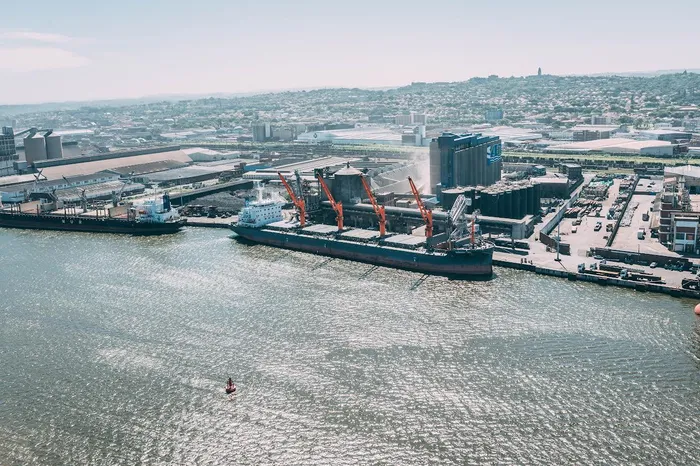Transnet calls for proposals to enhance Durban port with new fresh produce terminal
LOGISTICS

Transnet National Ports Authority (TNPA) said in a statement on Monday that they had issued a request for proposals (RFP) for the appointment of a terminal operator to construct a multi-purpose terminal (MPT) to handle fresh produce and compatible break bulk cargo.
Image: Supplied
Transnet National Ports Authority (TNPA) has issued a Request for Proposals (RFP) for the appointment of a terminal operator to construct a multi-purpose terminal (MPT) to handle fresh produce and compatible break bulk cargo at the Port of Durban.
TNPA on Monday said that the RFP will be for the appointment of a terminal operator to design, develop, fund, construct, operate, maintain and transfer an MPT handling fresh produce and compatible break bulk cargo for a 25-year concession period at the port.
“The issuing of this RFP is in accordance with Section 56 of the National Ports Act No. 12 of 2005 to enhance the port's efficiency and competitiveness,” it said.
“This brownfield development is earmarked for the Maydon Wharf precinct of the port, which has its landside area dedicated to commercial logistics, including warehousing and transport logistics-related activities.”
The port spans approximately 145 hectares, features 15 berths and has a capacity of more than seven million tons of cargo annually.
Situated at the western extent of the port, the precinct is primarily a mixed-use precinct that hosts cargo terminals handling dry bulk, break bulk, a limited amount of liquid bulk and containerised units.
Nkumbuzi Ben-Mazwi, acting TNPA port manager for the Port of Durban, said that this multi-purpose terminal RFP was a pivotal development for the port.
“It will enhance the port’s competitiveness to support the domestic and international supply chain while aligning with Transnet’s goals to increase cargo volumes and ultimately lead to economic growth and job creation in the region,” Ben-Mazwi said.
Malcolm Hartwell, Norton Rose Fulbright director and master mariner, said that TNPA’s recent RFP reflected its continued commitment to privatisation.
“The Port of Durban was, for decades, the primary port for the export of fresh produce, in particular, citrus from Mpumalanga. The fresh produce terminal has fallen into disrepair and, as a result, lost most of the trade to containerisation and the neighbouring countries,” he said.
Hartwell added that the private sector has been pushing Transnet to allow the private sector to operate various terminals in various ports, with Transnet playing the role of landlord.
“The private sector enjoys the expertise to operate specialist terminals and has the capacity to develop them. TNPA, for well-documented reasons, lacks the expertise and the capacity and, burdened with massive capital debt, has been unable to maintain the existing facilities or develop new ones.”
Hartwell said that the RFP was accordingly good news, not only for Transnet but also for the future users of a terminal of this nature and South Africa’s economy.
“The benefit of having a terminal of this nature is that it will provide competition to similar terminals in Namibia and Mozambique and attract specialist refrigerated ships to South African ports. Those ships will obviously contribute both to Transnet and the economy’s coffers,” he said.
BUSINESS REPORT